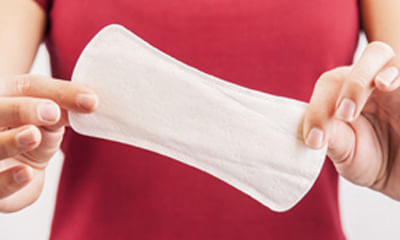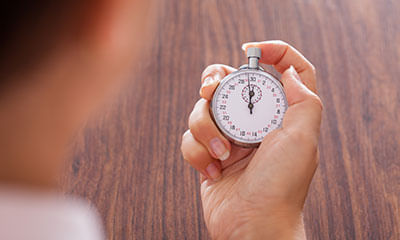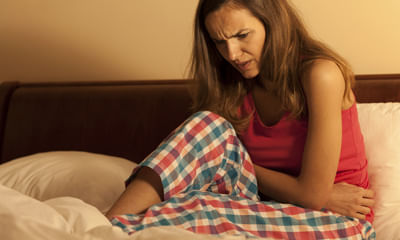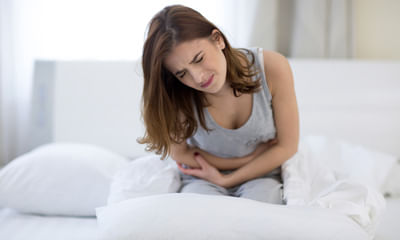Yellow Discharge And Pelvic Pain
I am 23 years of age. I am having a thin yellow discharge which come with unpleasant smell but its not that much strong, ...
Ask Free Question
It can be because of infection. 1.Maintain high grade of personal hygiene. 2.Do change your underclothes at least 2 times a day 3.Wear cotton under garments 4.Stay hydrated. Drink plenty of fluids. 5.Keep the area dry homeopathy is a very effective for this problem n has very encouraging results. And homeopathic medicines are safe and do not have any side effects at all.
I get vaginal infection very frequently these days. I have been observing this for past 2 months. The kind of food I am ...
Ask Free Question
Hi, Lybrate user, •yeast infection grows in vulva, cause itching & irritation with cheesy discharge.•wear loose under garments to allow fresh air to nourish your pelvic, groin and vaginal muscles to check infection.•clean external genital area with underlying homoeopathic medicine. @ echinecea q -20 drops with 1/2 cup of water, thrice, daily. •@take, 10 drops of echineceaq mixed with 2tsfl of water, orally, thrice. •consult ,privetly for a better and faster recovery, please. •avoid, junk food, alcohol and nicotine. •report after a wk, privetly, please. Tk, care.
Why does I feel so much of unbearable burning in vaginal entrance while penetration and I also notice yellowing liquid i ...
Ask Free Question
Hi, Lybrate user, •yeast infection grows in vulva, cause itching & irritation with cheesy discharge.•wear loose under garments to allow fresh air to nourish your pelvic, groin and vaginal muscles to check infection.•clean external genital area with underlying homoeopathic medicine. @ echinecea q -20 drops with 1/2 cup of water, thrice, daily. •take, 10 drops of echineceaq mixed with 2tsfl of water, orally, thrice. •consult ,privetly for a better and faster recovery, please. •avoid, junk food, alcohol and nicotine. •report after a wk, privetly, please. Tk, care.
I am a 23 year old female. From may I was suffering from irregular, heavy periods and spotting after periods. And on 20/ ...
Ask Free Question
Esr should be reapeated after 3 weeks confirming that at that time there is no infection or illness of any type. For othres- consult gynecologist with all medical records and reports. You should have got period by this time if no treatment after 20/8.
I'm 24 year old unmarried women I experienced bloody/ brownish leucorrhoea in between my periods occasionally and I got ...
Ask Free Question
Leukorrhea is the medical name for normal vaginal discharge. It can be white or yellow, but it doesn't cause itching, pain, burning or irritation of the tissue around the vaginal opening. It's hard sometimes to tell the difference between leukorrhea and vaginal discharge caused from stis or a yeast infection.
Hi doctor need to inform you me and my partner had sex on my periods date was 28 dec my periods last up to 30 dec as con ...
Ask Free Question
-pill tablet is a hormonal contraception, an effective contraceptive tablet widely used by women to avoid unwanted pregnancy about i-pill emergency contraceptive pill, 1 tablet i-pill emergency contraceptive pill, 1 tablet belongs to the class of medications called ‘contraceptives’ primarily used for birth control and treating dysmenorrhea (irregular and painful periods). Contraception is a procedure that aims to prevent pregnancy and is used in family planning. Dysmenorrhea is irregular and painful, leading to abdominal pain, digestion problems, fainting, vomiting, and nausea. I-pill emergency contraceptive pill, 1 tablet is a combination of three medicines: levonorgesterol, ethinylestradiol, and ferrous fumarate. I-pill emergency contraceptive pill, 1 tablet works by preventing the release of an egg from ovaries and making sperm entry difficult to enter in the uterus to fertilise sperm and egg. In addition to this, i-pill emergency contraceptive pill, 1 tablet prevents the thickening of the uterus's inner wall, required for an egg growth in the uterus. Ferrous fumarate is required to make up for the amount of iron in the women lost during their menstrual period. You should take this medicine as prescribed by your doctor. The common side effects are acne, amenorrhea (absence of menses), tenderness, pain, or swelling of the breasts, decrease in the secretion of breast milk after giving birth, dizziness, oedema (fluid retention), gastrointestinal symptoms such as abdominal pain, cramps, and bloating, unwanted hair growth, intolerance to contact lenses, changes in sexual desire, loss of scalp hair, change in menstrual flow, dark patches on the skin, mood changes, nausea, nervousness, vaginal discharge, vomiting, and loss or gain of appetite. If the side effects are persistent, reach out to your doctor. Do not take i-pill emergency contraceptive pill, 1 tablet if you are allergic to any contents of it. Please do not smoke while you are using i-pill emergency contraceptive pill, 1 tablet as it increases the risk of a blood clot. Inform your doctor before starting i-pill emergency contraceptive pill, 1 tablet if you are over 35 years, smoke, have or ever had a heart problem, uncontrolled hypertension (high blood pressure), cancer of breast, uterus, or vagina, liver diseases, diabetes that affect blood vessels, headache with disruption of the brain function, and prolonged immobilization due to a surgery. Do not take this medicine if you are pregnant or breastfeeding. Uses of i-pill emergency contraceptive pill, 1 tablet contraception, dysmennohrea (irregular menstrual cycle) medicinal benefits i-pill emergency contraceptive pill, 1 tablet is a combination of three medicines: levonorgestrel, ethinylestradiol, and ferrous fumarate. It is primarily used for contraception (prevent pregnancy). It increases menstrual cycle regularity and decreases blood loss. It decreases the incidence of iron-deficiency anemia, dysmenorrhea (irregular or painful periods), functional ovarian cysts, and ectopic pregnancies (pregnancy outside the womb). Long-term use may decrease the incidence of fibroadenomas and fibrocystic disease of the breast (lumps in the breast), acute pelvic inflammatory disease (inflammation of the pelvic organs), and cancer of the ovary and vagina. Directions for use tablet: swallow it as a whole with water; do not crush, break or chew it. Safety information keep in a cool and dry place, away from sunlight keep out of reach of children storage store in a cool and dry place away from sunlight key ingredients levonorgestrel. Side effects of i-pill emergency contraceptive pill, 1 tablet acne amenorrhea (absence of menses) tenderness, pain, or swelling of the breasts decrease in secretion of breast milk after giving birth dizziness edema (fluid retention) gastrointestinal symptoms such as abdominal pain, cramps, and bloating unwanted hair growth intolerance to contact lenses changes in sexual desire loss of scalp hair change in menstrual flow dark patches on the skin mood changes nausea nervousness vaginal discharge vomiting loss or gain of appetite in-depth precautions and warning drug warnings i-pill emergency contraceptive pill, 1 tablet increases the risk of blood clots, heart attacks, strokes, gallbladder disease, liver tumors, cancer of the ovary, breast, cervix, or vagina, and inflammation of the pancreas. Do not stop taking this medicine even if there is irregular menses or spotting. Missing pills can also cause spotting or light bleeding. Do not switch to another brand or another type of birth control without informing your doctor. Drug interactions drug-drug interactions: i-pill emergency contraceptive pill, 1 tablet may interact with an antitubercular drug (rifampicin), drugs used for epilepsy (phenobarbital, phenytoin, primidone, topiramate, carbamazepine, and phenylbutazone), drugs used for hiv (ritonavir and modafinil), antibiotics, penicillins, and tetracyclines, herbal products containing st. John’s wort (hypericum perforatum). Drug-food interactions: alcohol consumption should be avoided while taking i-pill emergency contraceptive pill, 1 tablet. Drug-disease interactions: i-pill emergency contraceptive pill, 1 tablet should not be used in patients with a history of heart attack or stroke, blood clots in the legs (thrombophlebitis), lungs (pulmonary embolism), or eyes, blood clots in the deep veins of your legs, known or suspected breast cancer or cancer of the lining of the uterus, cervix, or vagina, liver tumor (benign or cancerous), angina pectoris (chest pain), unexplained vaginal bleeding, jaundice (yellowing of the whites of the eyes or skin) during pregnancy or during previous use of the pill, heart rhythm disorders, diabetes affecting your circulation, headaches with neurological symptoms, uncontrolled high blood pressure, liver disease, and surgery with prolonged bed rest.
I am suffered white discharge. And I was doing sex it was very painful. Please suggest what I should do? And after sex I ...
Ask Free Question
You are probably having pelvic inflammatory disease also called PID. You should consult a gynecologist and take a course of antibiotics under her guidance. Good luck.
Hi, My wife is 8 days late for her period. During ovulation she was under treatment for Acne and was prescribed Doxy 1, ...
Ask Free Question
It's a sign of pelvic infection and to add to it side effects of doxycycline to rule out pregnancy better get beta hcg done and a urine routine with culture along with vaginal swab test to see reason of infection and yellow discharge. Based on these results sensitive antibiotics course will be given sometimes if patient is resistant may need injectable medicines worst situation if all tests come normal then only way to know cause and treat it is by doing Laparoscopy (key hole surgery)
I am a unmarried girl .mujhe period khtm hone ke 2 ya 3 days ke baad hi white discharge hone lgta hai. Or ye pure 7 days ...
Ask Free Question
Vaginal discharge is most often a normal and regular occurrence. However, there are certain types of discharge that can indicate an infection. Abnormal discharge may be yellow or green, chunky in consistency, or have a foul odor. Abnormal discharge is usually caused by yeast or bacterial infection. If you notice any discharge that looks unusual or is foul smelling. Types of Vaginal Discharge There are several different types of vaginal discharge. These types are categorized based on their color and consistency. Some types of discharge are normal, but others may indicate an underlying condition that requires treatment. White A bit of white discharge, especially at the beginning or end of your menstrual cycle, is normal. However, if the discharge is accompanied by itching and has a thick, cottage cheese-like consistency or appearance, itâs not normal and needs treatment. This type of discharge may be a sign of a yeast infection. Clear and Watery A clear and watery discharge is perfectly normal and can occur at any time of the month. It may be especially heavy after exercise. Clear and Stretchy When discharge is clear but stretchy and mucous-like, rather than watery, it indicates that you are likely ovulating. This is a normal type of discharge. Brown or Bloody Brown or bloody discharge is usually normal, especially when it occurs during or right after your menstrual cycle. A late discharge at the end of your period can look brown instead of red. You may also experience a small amount of bloody discharge in between periods, which is called spotting. If spotting occurs during the normal time of your period and you have recently had sex without protection, this could be a sign of pregnancy. Spotting during an early phase of pregnancy can be a sign of miscarriage, In rare cases, brown or bloody discharge can be a sign of advanced cervical cancer. This is why itâs important to get a yearly pelvic exam and Pap smear test. Yellow or Green A yellow or green discharge, especially when itâs thick, chunky, or accompanied by a bad smell, is not normal. This type of discharge may be a sign of the infection trichomoniasis, which is commonly spread through sexual intercourse. Causes of Vaginal Discharge Normal vaginal discharge is a healthy bodily function, and itâs your bodyâs way of cleaning and protecting the vagina. Itâs normal for discharge to increase with exercise, sexual arousal, ovulation, birth control pill use, and emotional stress. Abnormal vaginal discharge, however, is usually caused by an infection. Bacterial Vaginosis Bacterial vaginosis is a bacterial infection and is quite common. This infection causes increased vaginal discharge that has a strong, foul, and sometimes fishy odor, although it produces no symptoms in some cases. Women who receive oral sex or who have multiple sexual partners have an increased risk of acquiring this infection. Trichomoniasis This is another type of infection, but a protozoan (a single-celled organism) causes it. The infection is usually spread by sexual contact, but it can also be contracted by sharing towels or bathing suits. This infection results in a yellow or green discharge that has a foul odor. Pain, inflammation, and itching are also common symptoms, although some people donât experience any symptoms. Yeast Infection A yeast infection is a fungal infection that produces white, cottage cheese-like discharge in addition to burning and itching sensations. The presence of yeast in the vagina is normal, but its growth can multiply out of control in certain situations. The following may increase your likelihood of yeast infections: stress diabetes birth control pill use pregnancy antibiotics (especially prolonged use over 10 days) Gonorrhea and Chlamydia Gonorrhea and chlamydia are sexually transmitted infections can produce an abnormal discharge, which is often yellow, greenish, or cloudy. Pelvic Inflammatory Disease Pelvic inflammitory disease is an infection that is often spread by sexual contact. It occurs when bacteria spreads up the vagina and into other reproductive organs. It may produce a heavy, foul-smelling discharge.
Hi am 23 years old. Unmarried and living in a hostel in bangalore. From 21st feb I am having pain in my stomach as if so ...
Ask Free Question
Prolactin is the hormone that stimulates milk production by the breasts. Small elevations in prolactin cause irregular menstrual periods or complete loss of menses (amenorrhea), ability to ovulate (remain fertile) and may cause milky discharge from the breasts (galactorrhea). In addition, women may have a reduction in their sex drive. The normal prolactin level is < 20 ng/ml.------------------------the pain and pinching sensation in abdomen can be due to -------------- 1. Pelvic inflammatory disease,(pid) as you experience white discharge while urinating if accompanied by foul mell, itching and frequent urination pointing toward yeast infection----------------------- 2. Normal white discharge if it is clear and odorless------------- so, I will advise you to undergo another confirmatory diagnostic tet and discuss the reportss with me--------------ct scan brain to rule out pituitary prolactinomas-----------------------






